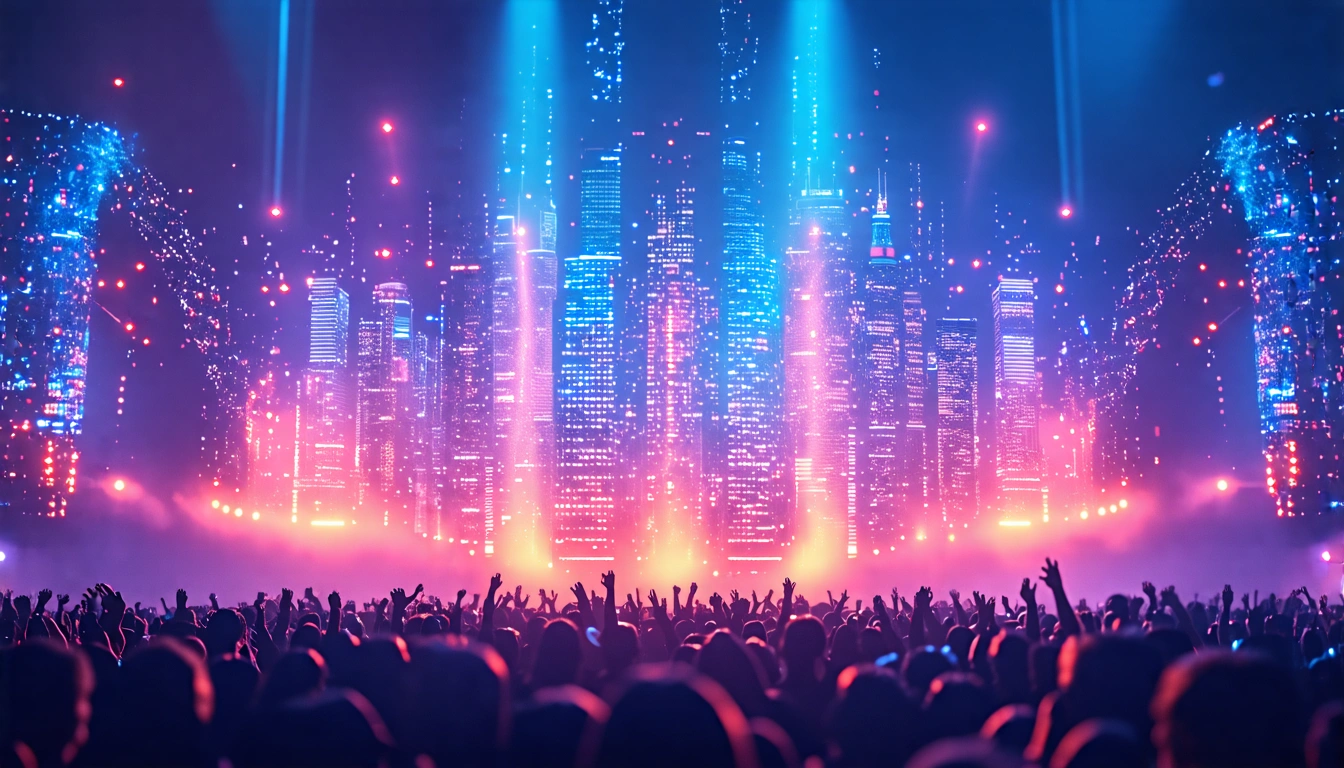Introduction
The advent of generative artificial intelligence (AI) has sparked widespread discussions about its implications for various sectors, particularly the music industry. With notable advancements in technology, AI is reshaping how music is created, produced, and experienced. This article delves into the transformative impact of AI on music, exploring ethical considerations, historical parallels, and the exciting potential for creativity that lies ahead.
The Rise of AI in Music
Generative AI has become increasingly integrated into daily life, with its presence felt in music production, artist collaborations, and even in the creation of viral content. The infusion of AI into music is reminiscent of past technological upheavals, such as the rise of digital audio workstations, samplers, and synthesizers, which have historically influenced genre evolution and cultural shifts.
For instance, the explosion of electronic dance music (EDM) coincided with the availability of affordable digital audio workstations, while the sampler was pivotal in ushering hip-hop into its golden age. Just as these technologies transformed music, AI is poised to lead the next significant musical movement.
The Ethics of AI Music
As AI technologies evolve, so too do ethical questions surrounding their use. Concerns about intellectual property, climate impact, and biases within AI systems are at the forefront of discussions. While some ethical dilemmas warrant serious consideration, it is evident that these concerns are unlikely to hinder the widespread adoption of AI.
For instance, the use of AI in creative processes raises questions about ownership and authenticity. However, similar debates have arisen throughout music history with the introduction of new technologies. From John Philip Sousa's fears about the impact of recording technology on folk traditions to the initial resistance against the electric guitar, each technological leap has prompted moral panics.
Creativity and AI: A Complex Relationship
A common refrain among critics of AI is that it lacks true creativity, serving only as an imitator of human artistry. This assertion carries weight, as AI does not possess intelligence in the human sense. Instead, it operates by analyzing existing data and generating outputs based on learned patterns. However, this does not diminish the potential for collaboration between human creativity and AI.
Like the art of collage, which rearranges existing elements to create new expressions, AI can be viewed as a tool for artistic exploration. Many artists have begun to leverage AI not as a replacement for human creativity, but as a complementary force that can inspire fresh ideas. For example, the band Everything Everything collaborated with AI to generate lyrics, drawing on unconventional sources to create innovative content.
Innovative Collaborations: AI and Artists
The merging of AI with traditional creative processes has led to unique and novel outcomes. Artists like Holly Herndon and Grimes have experimented with AI collaboration, pushing the boundaries of music creation. Herndon’s album "Proto" was a pioneering effort that showcased the potential for AI to contribute to artistic expression, while Grimes' deep fake project allowed fans to sing along using her AI-generated voice.
These collaborative endeavors exemplify a promising future where AI enhances rather than replaces human artistry. By embracing AI, musicians can explore new creative avenues, merging technology with their artistic visions.
The Sound of AI: Embracing Imperfections
The most compelling AI-generated music often emerges from the unexpected and the imperfect. Renowned artist Brian Eno has long emphasized the value of exploring the limitations of new technologies. He argues that the quirks and failures of a medium can lead to exciting artistic expressions. This philosophy is echoed in recent AI music projects, where artists deliberately exploit AI’s shortcomings to create something unique.
For instance, electronic composer Oneohtrix Point Never has utilized AI in innovative ways, exploring how it can misconstrue ideas and misrepresent history. By embracing these "happy accidents," artists are discovering a new dimension of creativity that transcends traditional boundaries.
The Role of AI in Visual Arts and Music Videos
AI's influence extends beyond music composition to the realm of visual arts and music videos. Artists are increasingly using AI to craft striking visuals that complement their soundscapes. The covers and promotional materials for albums like Everything Everything’s "Raw Data Feel" highlight the surreal potential of AI-generated imagery, blending human and machine in unsettling yet captivating ways.
Music videos have also benefited from AI's unique capabilities. From disorienting animations to eerie visual narratives, artists are harnessing AI to create experiences that challenge viewers' perceptions. The intersection of AI and visual storytelling adds another layer to the evolving landscape of music.
The Future of AI in Music: A New Genre?
As the music landscape continues to evolve, the potential for AI to define a new genre cannot be overlooked. The next generation of musicians will grow up in a world where AI tools are commonplace, facilitating artistic expression in ways previously unimaginable. This new generation will likely approach AI with a greater understanding of its capabilities, leading to innovative applications that blend technology with artistry.
In this context, it's essential to remain curious and open-minded about the future of music. The exploration of AI as a creative partner offers exciting possibilities, allowing artists to experiment with sound in unprecedented ways.
Conclusion: Embracing Change in the Creative Landscape
The integration of AI into music presents both challenges and opportunities. While ethical concerns and questions of authenticity persist, the potential for innovation is immense. Rather than viewing AI as a threat to creativity, it is crucial to recognize its potential as a transformative tool that can enhance artistic expression.
As we navigate this evolving landscape, artists, producers, and listeners alike must stay informed about emerging technologies and their implications for creative industries. By embracing change and exploring new creative horizons, we can ensure that music continues to thrive in the age of AI.
In the end, humans will always find ways to create and express themselves, regardless of the tools at their disposal. As AI continues to evolve, it is essential to focus on the exciting possibilities it presents for the future of music and the human experience.
